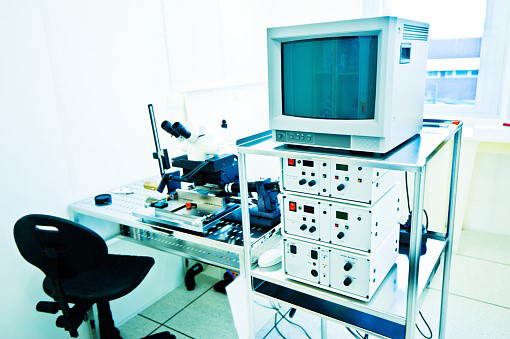Four Types of Servers You Should Know About

We are living in a time where most of our daily activities are done online using laptops or mobile phones. Every day we encounter new devices, new software, or new applications that will be needed in our future life. However, did we ever wonder how all these devices work? How are they able to meet our needs and remain up-to-date?
A server is a piece of the computer hardware itself or a computer program (software) that provides functionality to other programs or devices. Servers are able to perform a variety of functions, known as services such as sharing data among multiple clients or performing computation for a client. There are many types of servers, for example, communication servers that help devices in communicating through endpoints, database server that is responsible for sharing all needed information through a specific network, and file server that shares files, documents, and folders and predict the storing capability of a device and many other types of servers.

Tableau server
Tableau server is one type of servers that is so important for businesses. All what an organization needs is present in one server: a web-based platform that organizes and manages reports, workshops and missions. It can be accessed using any web browser where users have the right to create new workspaces, publish dashboards, and share them with other users. Many features are present: Tableau server assist users in scheduling their data and organizing the content from anywhere at any time, also, users can collaborate with other famous designers and share ideas to create customized and creative project in a specific field. In addition to the permissions that are granted to each user while using the application to organize the work, preventing employees from editing, or sharing certain contents.
Work using such a server is considered safe and secure, where tableau Server encrypts transmissions from clients to Tableau Server and from Tableau Server to databases using the robust security capabilities of SSL/TLS.

Amazon web server
Amazon web server or servers are spread over 81 availability zones known as serviced regions that are divided. The aim of these subdivisions is the geographical limits it offers where it allows higher subscription from different continents and it ensures high security standards by having data stored in a diversity of locations across the world.
Amazon Work Services (AWS) is comprised of numerous cloud computing products and services. It offers servers, storage, networking, remote computing, email, mobile development, and security. AWS’s main products are EC2, a virtual machine service, Glacier, a low-cost cloud storage service, and S3, a storage system.
All the data centers operated by AWS are monitored and maintained. The importance of the distribution of the operating system in many centers in the world offers the benefit of keeping the data hidden. What is the importance? When a problem occurs (hack, malware, hardware disruption…), global data will not be lost. The data centers and all data contained within them are safe from intrusions. How? Potential attacks can be quickly identified and easily remedied, 24 hours a day, seven days a week.

Nitrado ark server
Nitrado ark server is one of the largest game servers. It provides high-quality game servers at a low cost. This game server is for all gaming preferences, whether it is open-world, survival, shooter, sandbox, or simulation. The game portfolio currently consists of 122 games and is constantly growing.
This game server is highly protected. The protection relies on SteelShieldTM – Nitrado’s ultimate and proprietary DDoS protection which will mitigate any attack so gamers can focus on their game without worry!

Microsoft SQL Server
Microsoft SQL Server (Structured Query Language) is Microsoft’s relational database management system. It is a database server, which stores data according to order done by other applications. The SQL Server Operating System (SQLOS) manages lower-level functions like memory, job scheduling, and data locking to prevent conflicting updates.
To ensure and maintain security through this server, three technologies that are among the advanced security features were added. First, data encryption, which allows users to update encrypted data without first decrypting it; second, row-level security, which allows data access in database to be controlled at the row level; and third, dynamic data masking, which automatically hides elements of sensitive data from users without a full access privileges.
Other important SQL Server security features include transparent data encryption, which encrypts database data files, and fine-grained auditing, which collects detailed data on database usage. For securing communications between SQL Server clients and database servers, Microsoft also supports the Transport Layer Security protocol.
This was a small trip in the world of servers, but we should know that it is a very wide world and needs a lot to be covered. So to conclude, what we should always remember is that behind every click on our device, stands a large operation that is done through many servers.









































